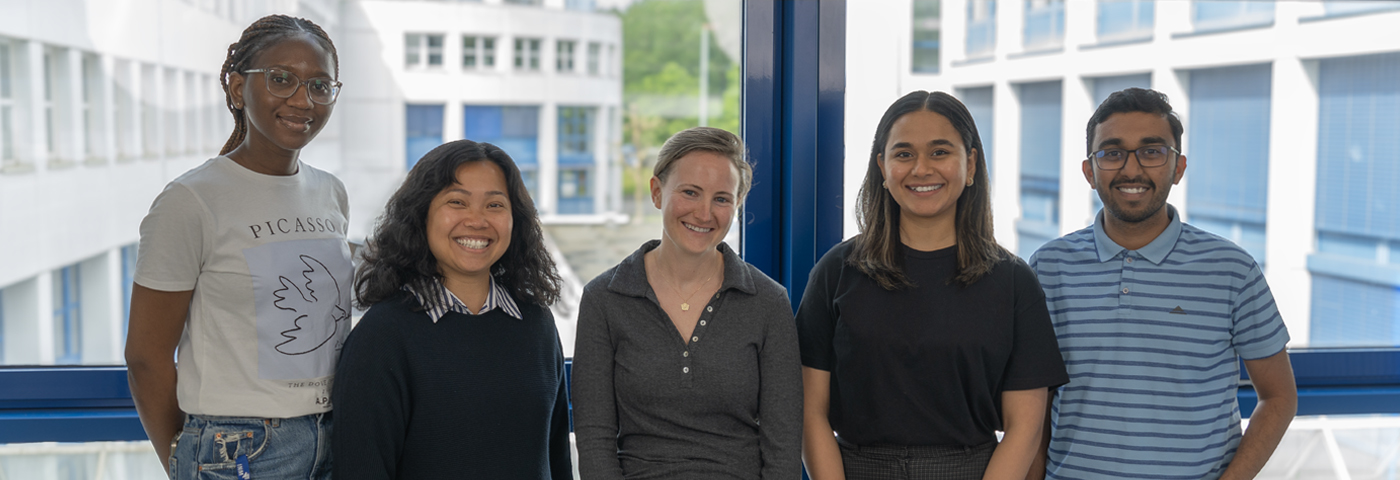The Research Group Materials-Host Interactions investigates how Living Therapeutic Materials (LTMs) interact with in vitro tissue models. We focus on understanding the risks associated with LTMs, to facilitate their safe and sustainable translation.

Mitarbeiter/innen
Research
Investigation of Living Therapeutic Materials
in vitro for pre-clinical development
We develop experimental methods to investigate LTM interactions with host tissue models in vitro. We develop compatible culture conditions for bacterial-based LTMs together with tissue models. We investigate effects that relate to LTM biocompatibility and safety, so we can quantify the probability of LTMs to cause unwanted side effects to the host.
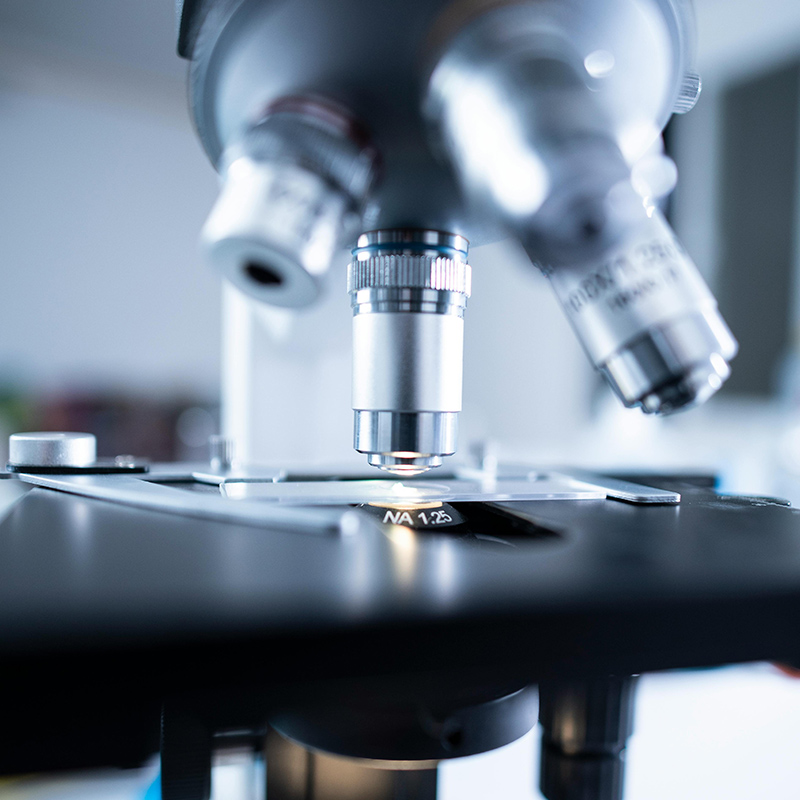
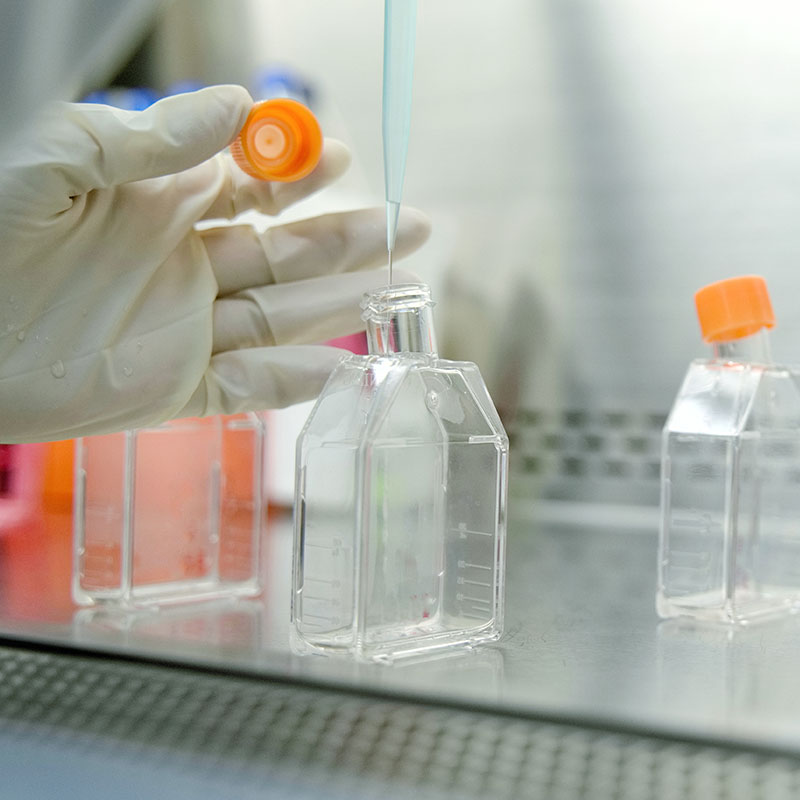
Development of cell and tissue models in health and disease
We apply 2D and 3D cell culture methods for the fabrication of functional models that can be used to investigate host responses to different stimuli. We use molecular biology techniques to characterize phenotypical and morphological changes so we can determine the potential effects of different treatments (materials or other therapeutics).
Our cellular models
To understand specific interactions between LTMs (or other therapeutics) and their target tissue in the host, we have established several in vitro models, and we continue to develop new ones to incorporate to our portfolio. We focus on angiogenesis, inflammation and biological barriers like the cornea.
Investigation of angiogenic potential
We have developed 2D and 3D models to assess pro- and anti-angiogenic potential using primary human endothelial cells and dermal fibroblasts. We also use the chick chorioallantoic membrane assay, an ex vivo system for the assessment of new capillary formation. These models allow us to quantify several parameters during endothelial cell sprouting.
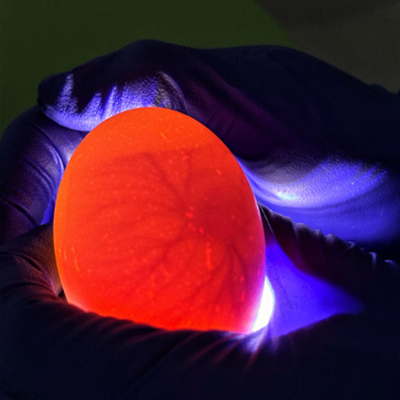
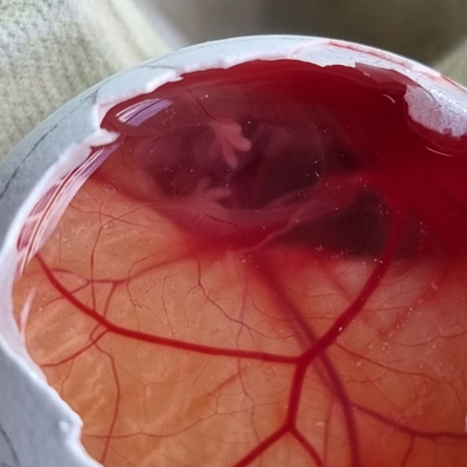
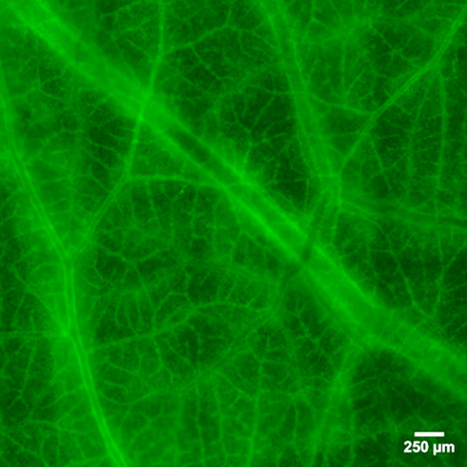
Models of endotoxemia
We are developing methods to assess inflammatory potential in vitro, by using cells involved in the foreign body reaction such as monocytes, macrophages and fibroblasts. We characterize phenotypic and morphological changes of these cells when in contact with LTMs or treated with different therapeutics. We use the monocyte activation test to detect the presence of endotoxin or non-endotoxin pyrogens, which can trigger fever in the host. We have developed an in vitro model of endotoxemia using macrophages, which can be used to investigate the mechanism of action of some therapeutics

Biological barriers models – Cornea
We are developing different barrier models, with a focus on the cornea tissue. We use these models to investigate drug-delivery to the eye. The complexity of biological barriers (skin, gut, blood-brain barrier, eye) comes from their layered structure with different cells that are critical for the overall function of the tissue. Many biological barriers are in contact with the air and therefore complex 3D layered models at the air-liquid interface are leveraged to recapitulate these tissues. These models will help us understand for example, how LTMs can be applied to the eye.
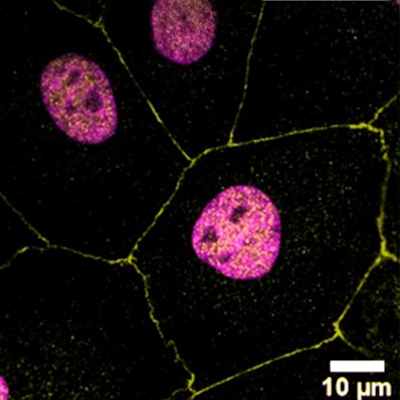
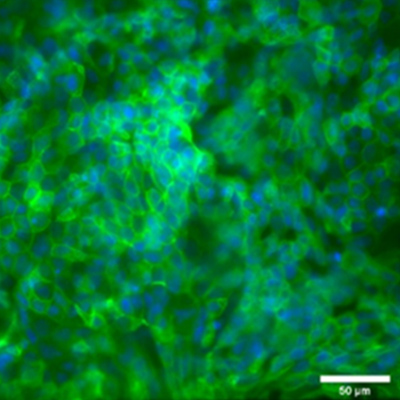
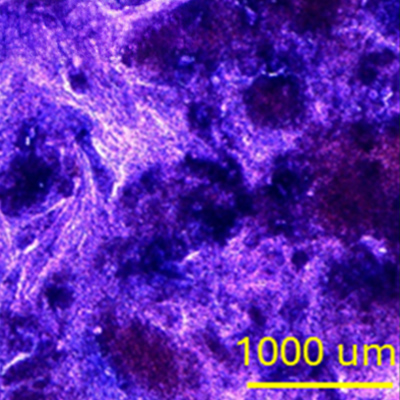
Publikationen
Mekontso Ngaffo, Joelle A. | Farrukh, Usama | Trujillo, Sara | Del Campo, Aránzazu
Biomaterials Advances , 2025, 169 214182.
https://www.sciencedirect.com/science/article/pii/S2772950825000093?via%3Dihub
Desai, Krupansh | Sankaran, Shrikrishnan | Del Campo, Aránzazu | Trujillo, Sara
Materials Today Bio , 2025, 30 101437.
https://www.sciencedirect.com/science/article/pii/S2590006424004988
Tadimarri, Varun S. | Blanch-Asensio, Marc | Deshpande, Ketaki | Baumann, Jonas | Baumann, Carole | Müller, Rolf | Trujillo, Sara | Sankaran, Shrikrishnan
Small , 2025, xxx (xxx), xxx.
https://onlinelibrary.wiley.com/doi/full/10.1002/smll.202408316
Puertas-Bartolomé, María | Gutierrez-Urrutia, Izabook | Teruel-Enrico, Lara Luana | Nguyen Duong, Cao | Desai, Krupansh | Trujillo, Sara | Wittmann, Christoph | del Campo, Aránzazu
Advanced Materials , 2024, 36 (27), 2313848.
https://onlinelibrary.wiley.com/doi/10.1002/adma.202313848
Trujillo, Sara | Kasper, Jennifer Y. | Miguel-Jimenez, Adrián De | Abt, Britta | Bauer, Alina | Mekontso Ngaffo, Joelle A. | Pearson, Samuel | del Campo, Aránzazu
ACS Omega , 2023, 8 (35), 32043-32052.
https://pubs.acs.org/doi/10.1021/acsomega.3c03952
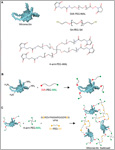
Monferrer, Ezequiel | Dobre, Oana | Trujillo, Sara | González Oliva, Mariana Azevedo | Trubert-Paneli, Alexandre | Acevedo-León, Delia | Noguera, Rosa | Salmeron-Sanchez, Manuel
Frontiers in Cell and Developmental Biology , 2022, 10 1-14.
https://www.frontiersin.org/articles/10.3389/fcell.2022.988699

